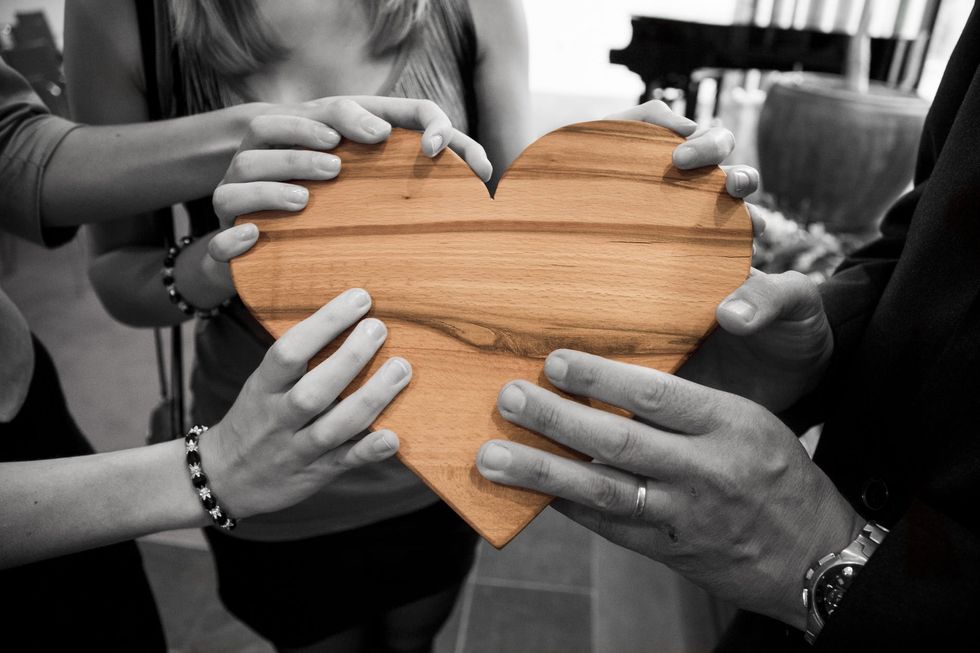1 in 5 adults experiences mental illness in a given year. If you know more than a handful of people, you know someone with a mental health concern. Thanks to increased awareness, more and more people want to be advocates, allies, and friends to those who are living with mental illnesses. It can be difficult, however, to know how to be a good ally especially when you’re new to the world of mental health. These do's and don't's can help.
Do your homework. This is one of the most important ways you can be a better advocate. Learn about different mental illnesses, especially the ones your loved ones have been open about. Showing that you’ve taken the time to become informed demonstrates that you care.
Do call other people out when they use stigmatizing language. You never know who is listening to someone’s hurtful comments. When someone says something that could add to the stigma surrounding mental illness, use the opportunity to calmly educate and point out how the comment could hurt someone. There are ways to do this that don’t involve sounding overly sensitive (not that there’s anything inherently wrong with being sensitive, of course). Use your imagination.
Do offer to help a loved one in practical ways. Is your friend struggling with depression? Offer to do their laundry or cook dinner for a night. Being an advocate means helping the people in your life who need your help, and little ways of showing you care can go a long way. And if you’re not sure what to do…
Do ask how you can help. Simply asking, “How can I help?” or “What do you need right now?” can make someone with a mental illness (or anyone, for that matter) feel valued and respected.
Do share articles about people’s experience with mental illnesses, written by someone who’s lived through it personally. It’s always important for the right voices to be heard.
Do recognize barriers to accessing treatment, and vote for candidates who try to break down those barriers. Not everyone can afford mental health care. Do your best to research a candidate’s health care accessibility plans and policies before voting. Think critically about what can keep someone from getting the help they need--racism, sexism, etc. Mental illnesses impact all races and ethnicities, but people of color face greater barriers in accessing care.
Don't use illnesses as adjectives. Bipolar is a serious mood disorder, not a fun way to describe your state’s weather. A panic attack is not the feeling of dread when you realize you forgot a homework assignment. It may seem trivial to you, but consider the consequences of using people’s real illnesses as common descriptors for unrelated things. Would someone silently struggling with PTSD be likely to open up to someone who says things like, “That quiz literally gave me PTSD”? Less likely. The little things count.
Don't use mental illnesses as costumes or quirks. “Mental patient” Halloween costumes are not the move. Put your cheap straitjacket and plastic ax down and think about the repercussions of portraying psychiatric patients in a dangerous light. I’ve been to mental hospitals. Nobody looks like that costume, trust me.
Don't try to diagnose yourself or others when someone opens up about their mental illness. “Oh, you have depression? That sucks. I think I have depression too; yesterday was really rough for me.” This kind of talk not only takes the focus off the other person, but it makes you sound uninformed and insensitive. You are not a professional, and you can’t compare your rough day to someone’s serious mental illness. Take a seat, please.
Don't chastise people for taking medication. Their prescribing doctor has a degree, and you probably do not. Stop talking if all you’re going to say is “medications make your personality change.” The reality is that the right medications make it possible to function and live the fullest potential that our personalities offer us!
Remember, if you’re not sure how to help or be a better advocate, ask. Don’t get defensive when someone corrects you. Be open to the process of learning, and you'll find yourself a greater ally to people with mental illnesses.





















